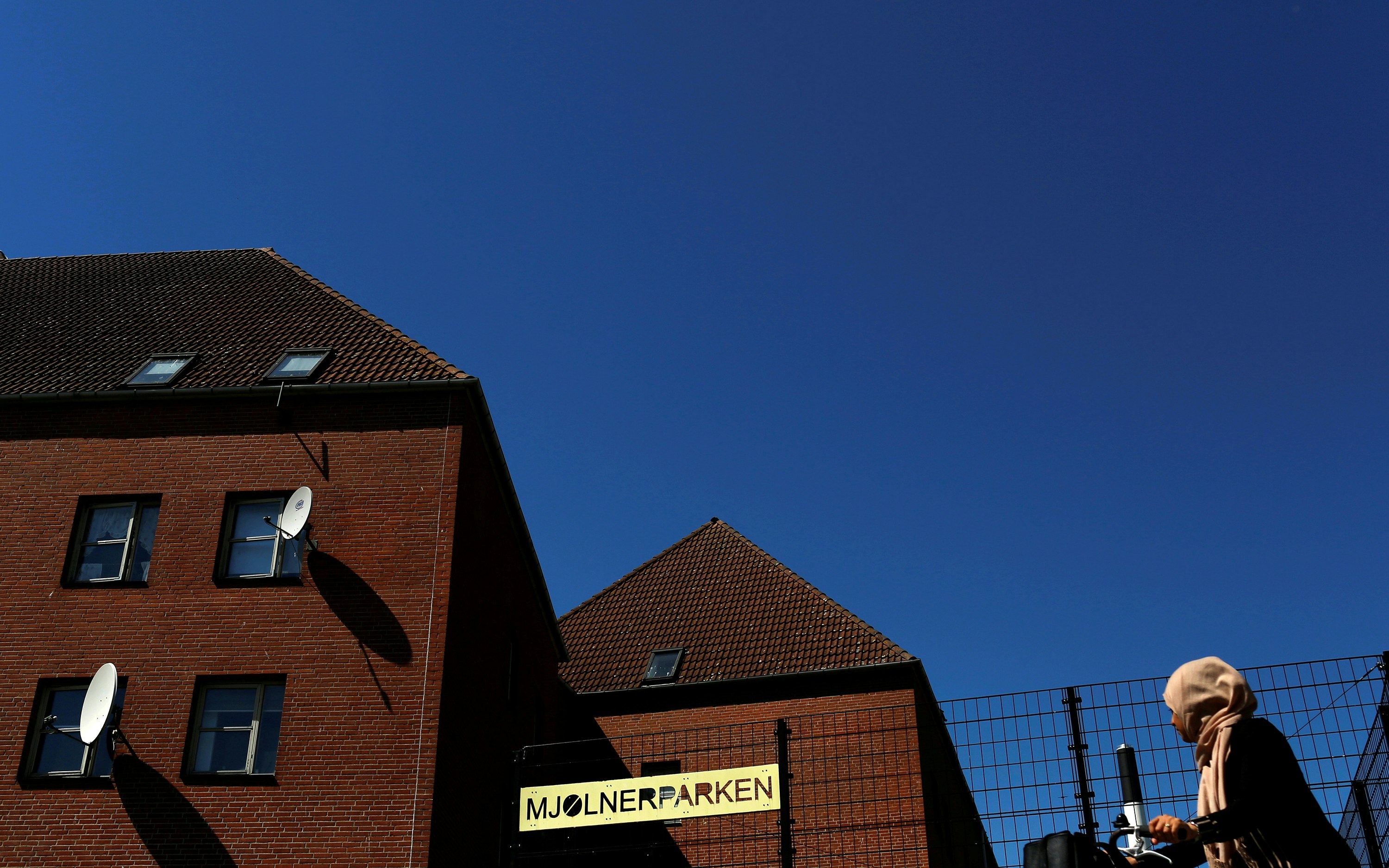Residents Sue Denmark Over Discriminatory “Ghetto Package” Eviction Plan
LONDON—Today, 12 Copenhagen residents filed a lawsuit against the Danish government seeking a declaration that measures under the country’s so-called Ghetto Package are unlawful under EU law and the European Convention on Human Rights.
The plaintiffs—with support from the Open Society Justice Initiative, along with Danish partners Eddie Omar Rosenberg Khawaja from Homann, Jacobsen & Khawaja Law Firm and Almen Modstand—claim that a state-approved plan to evict them from housing in an area deemed a “ghetto” by the government’s legislative package violates their rights to equality, respect for home, property, and freedom to choose their own residence.
The package, introduced in March 2018, includes a requirement to reduce common family housing in so-called tough ghettos to 40 percent by 2030. In Copenhagen’s Mjølnerparken, where the plaintiffs reside, the government earmarked over 200 apartments for sale pursuant to this law.
Thousands of others face eviction under similar plans across Denmark, at a time when the UN Special Rapporteur on Adequate Housing has pointed out that the COVID-19 crisis has laid bare inequalities in housing.
“We all value our home. In Mjølnerparken, where I live, we value our community and respect each other. We greet each other with a smile and a sparkle in our eyes. But as a result of the so-called Ghetto Laws we and other groups in Denmark might be evicted in the near future,” said Susanne Poulsen, a resident and plaintiff. “A home is a human right. This isn’t only a threat to us, but also to our children.”
The lawsuit, filed against the Ministry of Transport and Housing in the District Court of Copenhagen, argues that the plaintiffs in Mjølnerparken, deemed a “tough ghetto,” are being treated less favorably than people living in comparable areas that are not classed as such.
For the government to classify a neighborhood as a “ghetto,” it must have 50 percent or more residents of “non-Western” background. The concept of “non-Western” excludes Australia and New Zealand, suggesting that legislators were less concerned with geography than with race, religion, and ethnic origin.
“Denmark enjoys a reputation around the world as an egalitarian country with strong social and economic systems. These concepts are eroded by the ‘Ghetto Package’ and this eviction plan,” said Susheela Math of the Open Society Justice Initiative. “Not only are these residents stigmatised as inhabitants of a ‘ghetto’—with all its connotations—they are also facing losing their homes. The centrepiece of the law is a state-made label of ‘non-Western background,’ which can apply even to individuals born and raised in Denmark.”
The European Convention on Human Rights prohibits discrimination on any ground where other rights such as the right to respect for home are involved. This includes on grounds of racial or ethnic origin, which is also unlawful under the EU’s Race Equality Directive.
“The use of ‘non-Western background’ as a criterion in the law on common housing is closely connected to residents’ racial, ethnic and national origin,” said lawyer Eddie Omar Rosenberg Khawaja. “The plaintiffs, many of whom have lived in Mjølnerparken for decades, are going to lose their homes based on this criterion. This is discriminatory and violates their human rights.”
In the last few years, Denmark has made international headlines for a rise in laws that appear to target Muslims. The government recently introduced a law that imposes fines on anyone wearing a face-covering garment including the face veil worn by a small number of Muslim women, around 150 in Denmark.
And in 2018, Parliament adopted legislation requiring immigrants who want to obtain citizenship to shake hands with officials as part of the naturalization ceremony—a requirement which the authorities initially failed to suspend even during the current COVID-19 crisis. The move was widely understood to target Muslims.
The government’s plans under the “Ghetto Package” come as the UN Committee on Economic, Social and Cultural Rights has expressed concern at the shortage of affordable housing in Denmark, exacerbated by the growing trend in property acquisition by private investors who are authorized to increase rents.
“We in the tenants’ network, Almen Modstand, cannot accept the threat of being forced from our homes and witness our loved communities being ripped apart on the basis of discrimination; simply because of who we are and because our neighbourhoods are also home to low-income, ethnic minorities. We stand together with the plaintiffs, who are fighting not only for themselves but for our shared vision to protect our affected communities, and for the society as a whole, for our basic democratic values of equality and the right to the home. We have a vision of a Denmark that is inclusive to all, no matter skin colour, income, or neighbourhood.”
Related Work
Q&A: My Fight to Save My Home Under Denmark’s Harsh “Ghetto Plan”
In Denmark, Open Society Justice Initiative partnered with local residents to stop mass evictions and save their homes under the country’s controversial and discriminatory “Ghetto Package.”

Tenants of Mjølnerparken v. Danish Ministry of Transport and Housing
Twelve Copenhagen residents have filed a lawsuit against the Danish government seeking a declaration that measures under the country’s so-called Ghetto Package are unlawful under EU law and the European Convention on Human Rights.